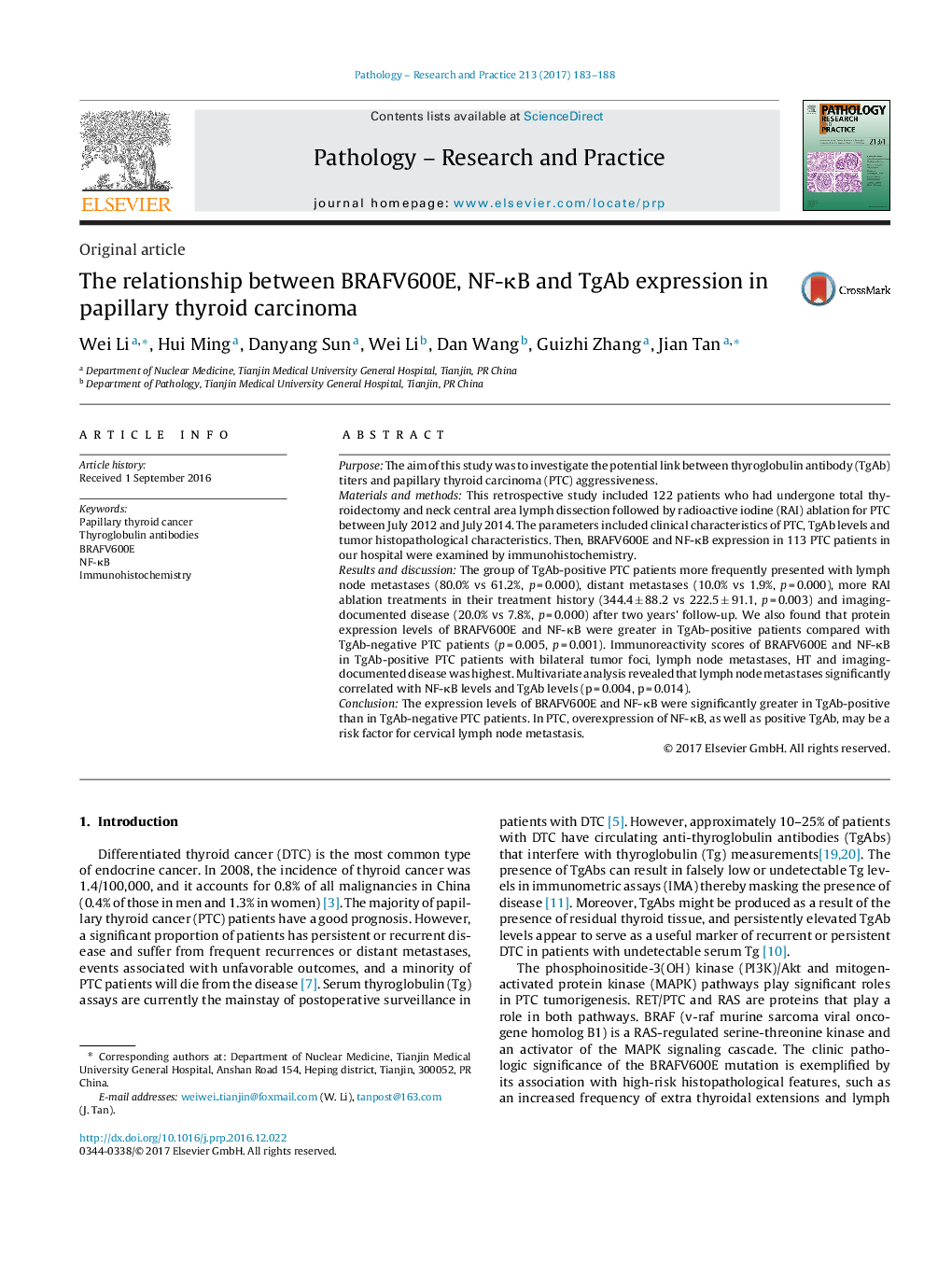| Article ID | Journal | Published Year | Pages | File Type |
|---|---|---|---|---|
| 5529260 | Pathology - Research and Practice | 2017 | 6 Pages |
PurposeThe aim of this study was to investigate the potential link between thyroglobulin antibody (TgAb) titers and papillary thyroid carcinoma (PTC) aggressiveness.Materials and methodsThis retrospective study included 122 patients who had undergone total thyroidectomy and neck central area lymph dissection followed by radioactive iodine (RAI) ablation for PTC between July 2012 and July 2014. The parameters included clinical characteristics of PTC, TgAb levels and tumor histopathological characteristics. Then, BRAFV600E and NF-κB expression in 113 PTC patients in our hospital were examined by immunohistochemistry.Results and discussionThe group of TgAb-positive PTC patients more frequently presented with lymph node metastases (80.0% vs 61.2%, p = 0.000), distant metastases (10.0% vs 1.9%, p = 0.000), more RAI ablation treatments in their treatment history (344.4 ± 88.2 vs 222.5 ± 91.1, p = 0.003) and imaging-documented disease (20.0% vs 7.8%, p = 0.000) after two years' follow-up. We also found that protein expression levels of BRAFV600E and NF-κB were greater in TgAb-positive patients compared with TgAb-negative PTC patients (p = 0.005, p = 0.001). Immunoreactivity scores of BRAFV600E and NF-κB in TgAb-positive PTC patients with bilateral tumor foci, lymph node metastases, HT and imaging-documented disease was highest. Multivariate analysis revealed that lymph node metastases significantly correlated with NF-κB levels and TgAb levels (p = 0.004, p = 0.014).ConclusionThe expression levels of BRAFV600E and NF-κB were significantly greater in TgAb-positive than in TgAb-negative PTC patients. In PTC, overexpression of NF-κB, as well as positive TgAb, may be a risk factor for cervical lymph node metastasis.
